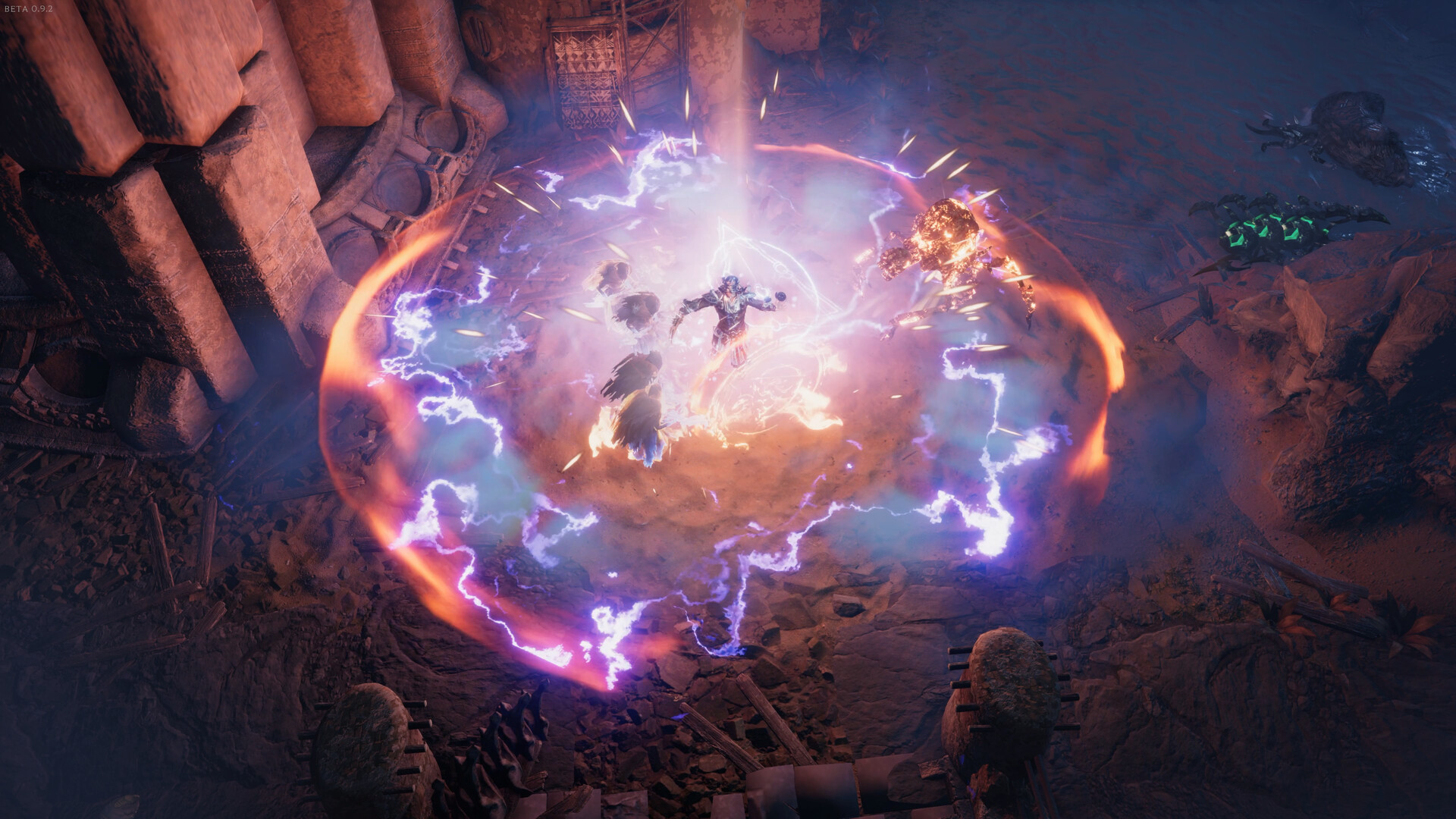Established in 2004, Chuwi is a Chinese OEM based in Shenzhen, with a pretty neat lineup of Windows tablets and 2-in-1s since a while. Very popular on online retailers in China, the company is now trying to gain ground in other markets. Chuwi is also a global partner for Intel and Microsoft, which inspires a little confidence in this relatively unknown brand.
From their diverse lineup of devices in different form factors, I ordered the Chuwi Hi10 Pro, a Windows 10 2-in-1 with detachable keyboard. At less than $250, it's an affordable laptop for casual users as well as a great tablet for just about anyone who's looking for a Windows tablet.
The Good
- Good build quality
- Beautiful WUXGA display
- Great price
- Type-C charging
The Bad
- Average camera
- Wonky touchpad
- Slightly heavy
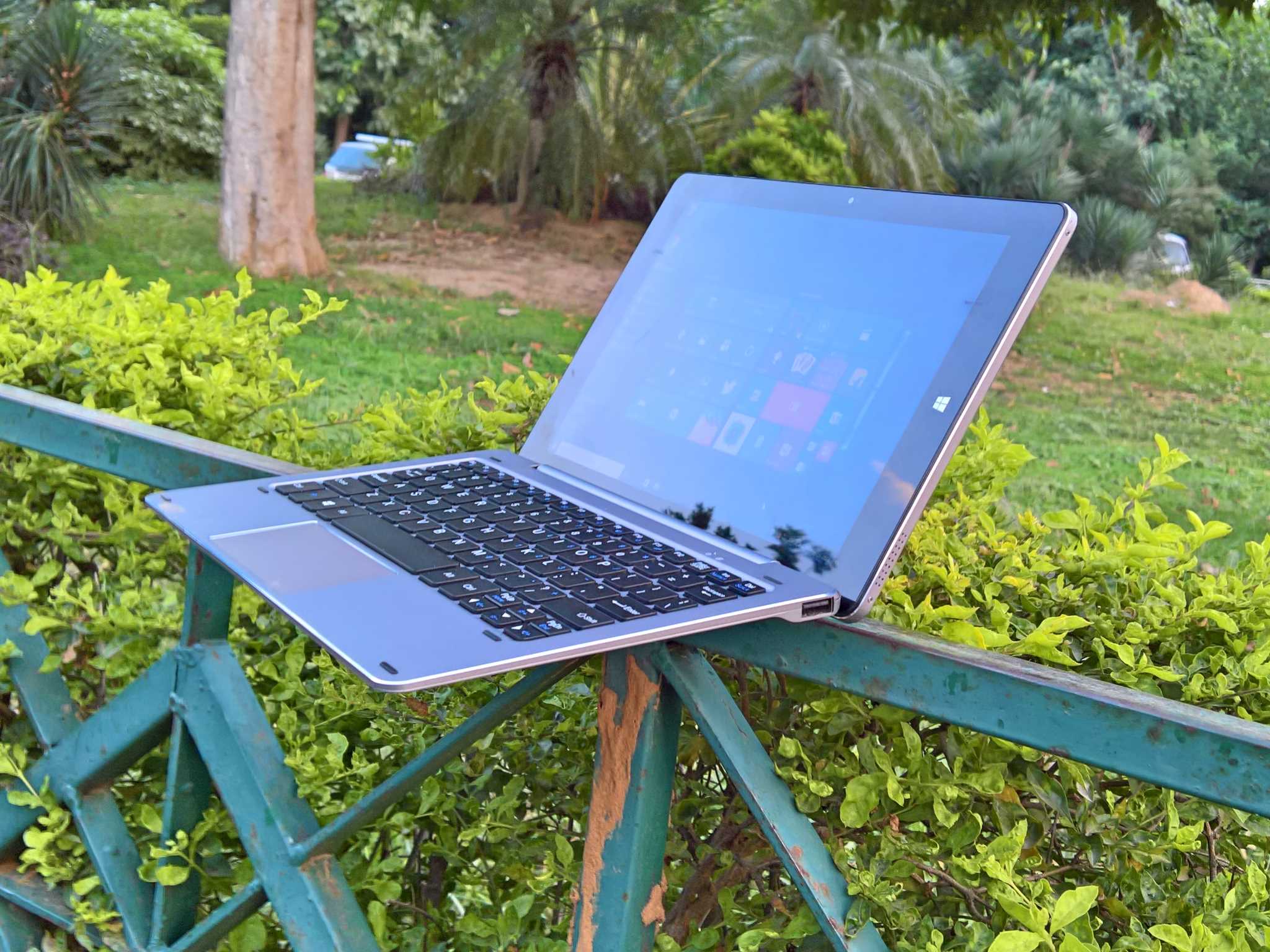
Chuwi Hi10 Pro Design
The Hi10 Pro sports a full metal unibody design featuring an exquisite aluminum alloy chassis. The metallic finish gives it a premium look one would not expect from a budget device. It looks solid and the texture feels great in the hand — especially the curved edges which aid the grip — and can take casual everyday handling.
The bezel on the top is quite thick, and while on one side it is put to use with the Windows button, I didn't really mind it since it offered me a little extra room to hold the tablet easily without my thumb or palm covering the display.
The Hi10 Pro offers a generous heaping of connectivity options, all lined up on one edge of the tablet There's the TF card slot, USB Type-C for charging, Micro USB, Micro HDMI, and the 3.5mm headphone jack. The keyboard too includes a USB port. Chuwi has done well to pack all of these in its sleek form factor.
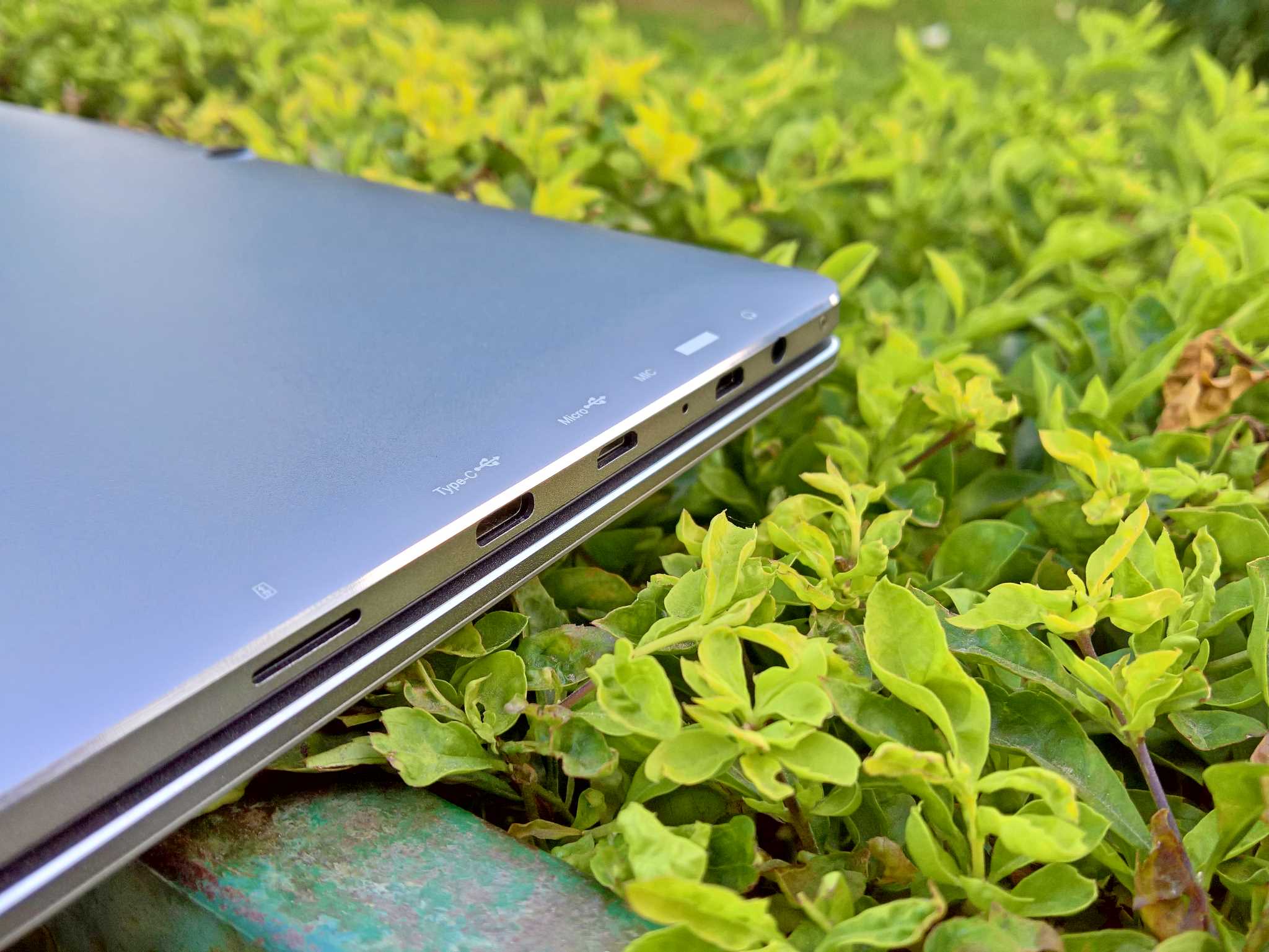
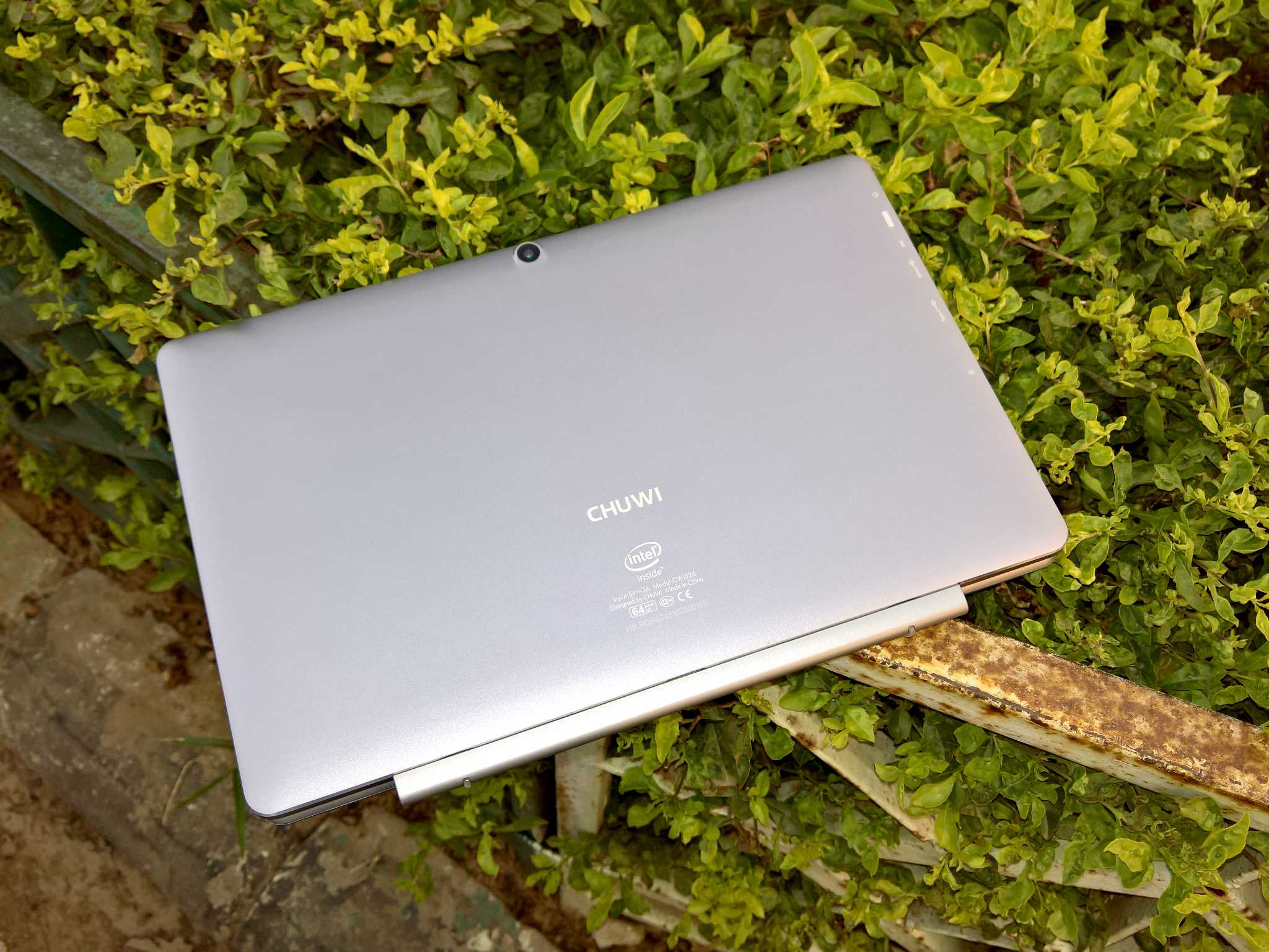
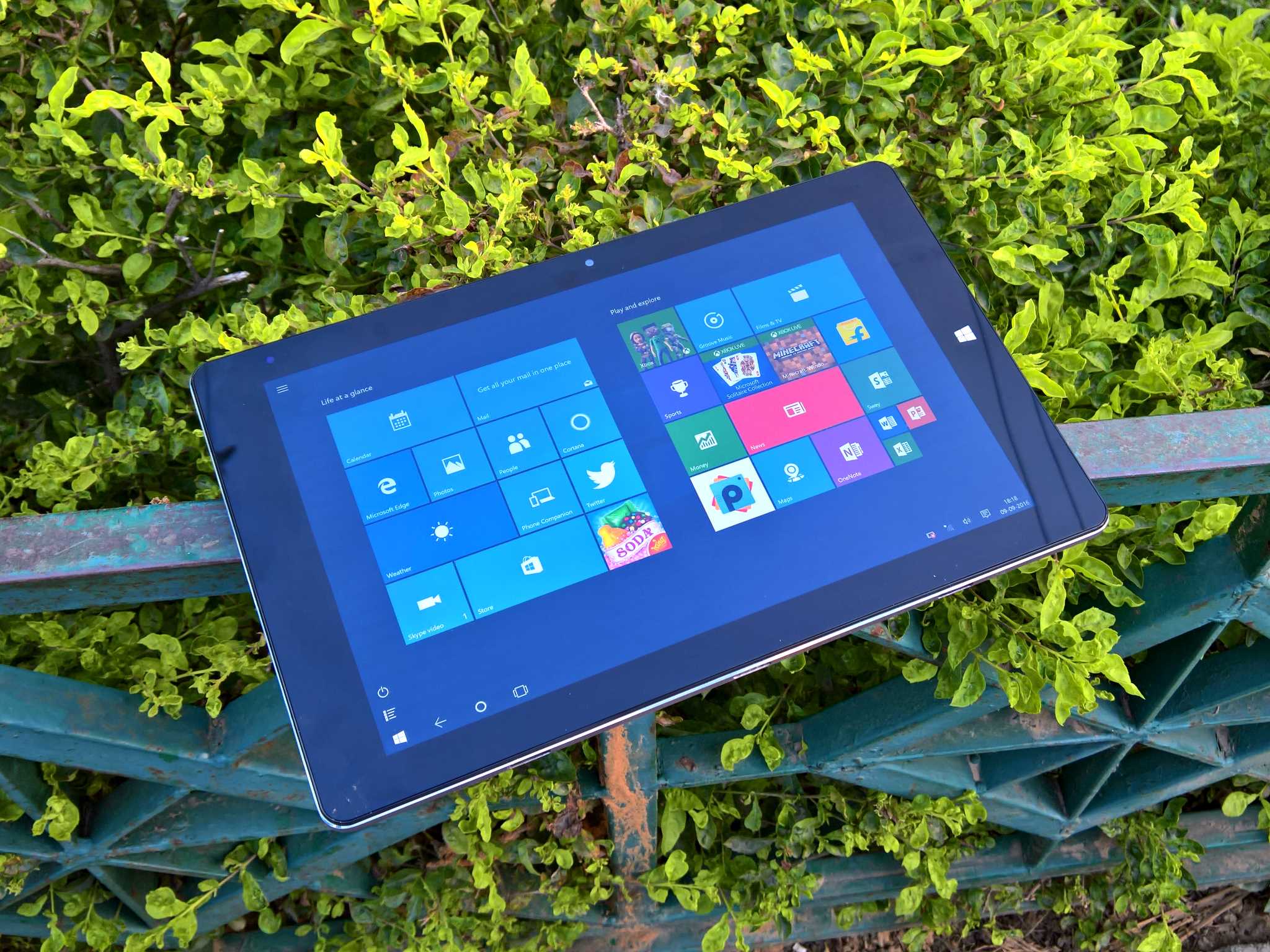
For the price, the Hi 10 Pro impresses in aesthetics. At 562 grams, it's not very heavy – about 100 grams heavier than the much more expensive iPad Air 2. I carried it around casually through the day, without it getting overbearing on my arm or wrist anytime.
Chuwi Hi10 Pro Display
The Hi10 Pro's 10.1-inch IPS display offers a 1920 x 1200 resolution, which is quite good for the price. The colors are vivid and text Windows looks crisp all around. The 16:10 aspect ratio makes it quite usable in the portrait mode as well, though it's not as ideal as something that's not quite so tall.
The 350-nits display is relatively bright, and you can tweak Intel's graphics options to crank it up even further. The sunlight legibility is not so great, and the screen is quite reflective even when the brightness is set to its maximum.
The glass tablet surface is smooth, and does not feel cheap in any way. The capacitive touchscreen worked quite well, correctly identifying taps and multi-touch gestures.
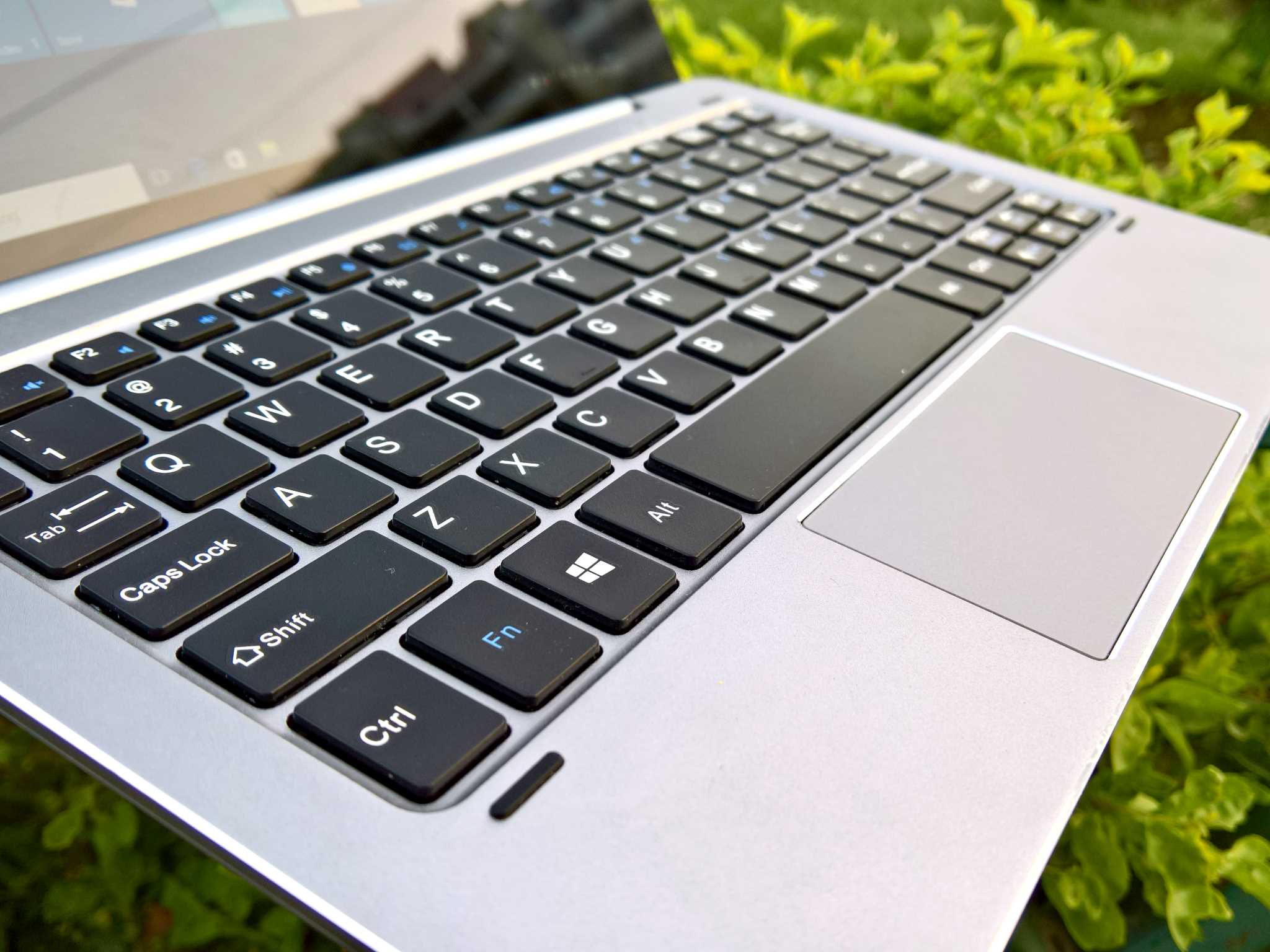
Chuwi Hi10 Pro Keyboard
Like Microsoft's Surface range, a keyboard is not bundled with the HiPro, but is available as a separate purchase. I think that's fair enough, helping Chuwi sell really cheap tablets for those who are interested just that.
At a little over half a kilogram, the keyboard is a tad heavy, and surprises you on first impression. Together with the tablet, it makes the package about 1,100 grams – not really light as one would've hoped. It's heavier than my Surface 3, for example. That said, the heavy keyboard makes sure it is a solid dock and doesn't wobble with the tablet inclined on it.
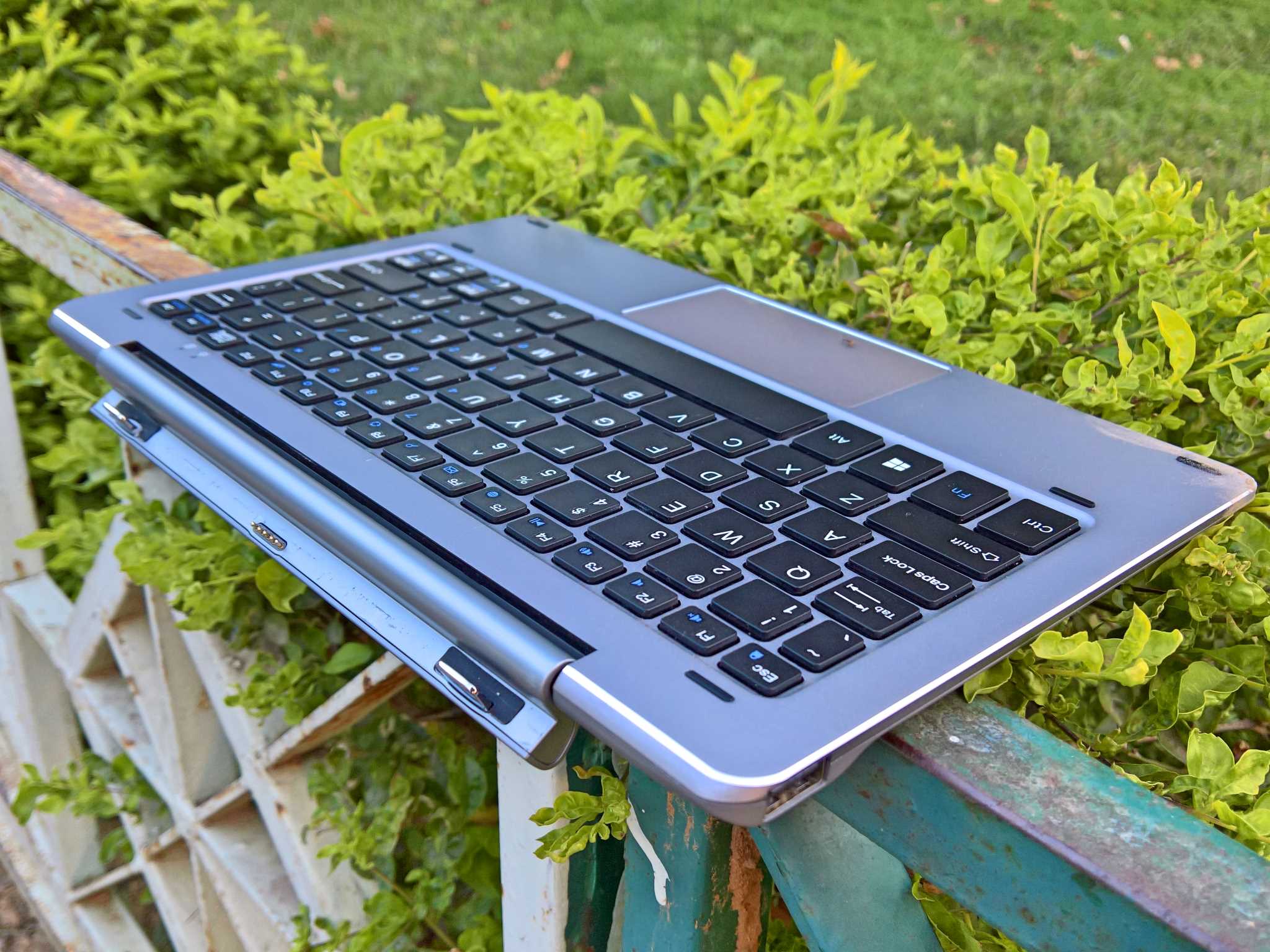
The detachable magnetic docking keyboard for Hi 10 Pro connects easily, is easy to remove, and doesn't wobble or come off unintended. Essentially, it's solid in build and construction. The keys are easy to press and you can type on them for extended periods of time without getting annoyed. If you're coming from a 14- or 15-inch laptop or a desktop keyboard, of course the tiny space between the keys would be annoying at first. If you've been using a smaller laptop or 2-in-1, it isn't a difficult transition.
The touchpad on the Hi10 Pro, though, could be better. Frequently, it would act jumpy and even adjusting the sensitivity wasn't enough to stop the cursor from randomly moving. A firmware or driver update could well take care of it, but I'm not sure if Chuwi is game for that.
Chuwi Hi10 Pro Software
I've kept this unsaid till now because I was least interested in this pitch. The Chuwi Hi 10 Pro is a dual-boot device and includes Windows 10 Home as well as Android 5.1. I really don't care about the latter, and only logged in once to set it up and check if all works fine (yes, it does). Also, it's two-year-old Android Lollipop and not likely to get an update to 6.0 or the just-released Android 7.0 Nougat, so unless you really need it, you can just ignore it.
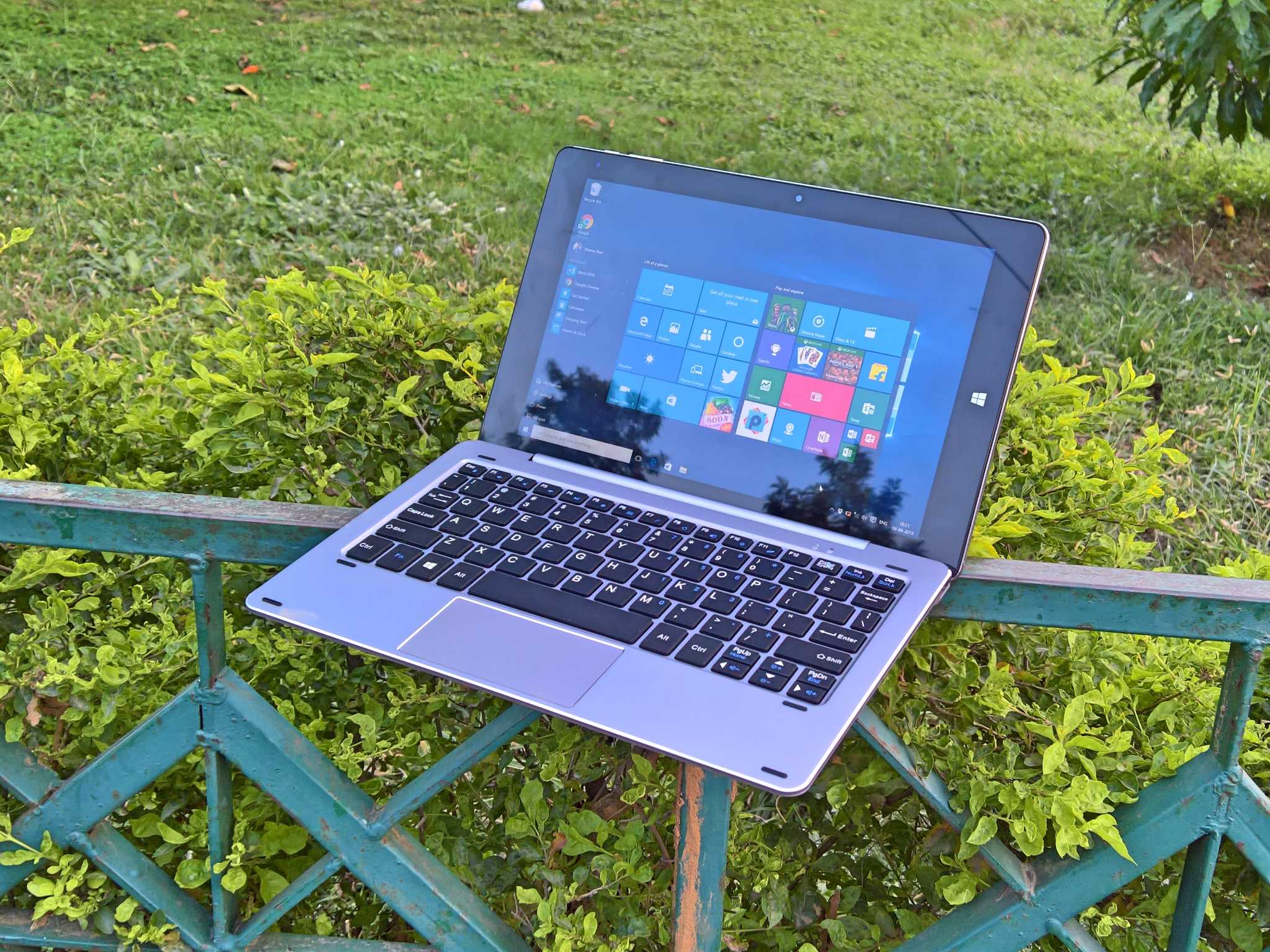
Chuwi Hi10 Pro Hardware
| Category | Features |
|---|---|
| Operating System | Android 5.1 and Windows 10 Home |
| Processor | Intel Z8300 Quad Core, 1.44GHz |
| RAM | 4GB |
| Internal Storage | 64GB; expandable up to 128GB via TF card |
| Display | 10.1-inch WUXGA (1920 x 1200) 10-Point capacitive IPS display |
| Ports | TF card slot, USB Type-C, Micro USB, Micro HDMI, 3.5mm Headphone Jack |
| Camera | 2MP front camera | 2MP rear camera |
| Dimensions | 26.18 x 16.73 x 0.85 cm |
| Weight | 562 grams (without keyboard) |
Powered by Intel's 14nm X5 Series Cherry Trail CPU (up to 1.84GHz) with a generous 4GB RAM, the Hi10 Pro is able to offer enough grunt for most apps and basic games. You shouldn't really stretch this hardware for graphic-intensive games or anything extraordinary, because then it shows its weakness.
The Hi10 Pro packs in 64GB of internal storage, which can be extended up to 128GB. It's eMMC, not SSD, mind you. Even though it's flash storage, eMMC typically is slower than SSD and boot times and large file operations are slower.
For a basic professional or student with a light workload – typically multi-tabbed browsing, Office apps, and some multimedia – the Hi10 Pro works quite well, and suffices without breaking a sweat. Anything more, is not what it is meant for, and that shows.
Both the front and rear cameras on the Hi 10 Pro are pretty average. There's always a little blur, and the front camera shots are usually dark. For those Skype calls, you might want to pick a well-lit spot, lest your face disappear into the darkness.
The battery life on the Hi10 Pro is pretty good. The 6500mAh battery allows for about 6 to 7 hours of normal usage. While Chuwi advertises quick charging, it's not quick enough. Using the supplied 5V/3A charger, it takes 3 to 4 hours to charge the Hi10 Pro to 100%.
It's quite nifty that the device uses USB 3.0 Type-C for charging — if you carry one of the latest smartphones you won't need to carry a separate chargers. Also, it also charges using any of the newer power banks.
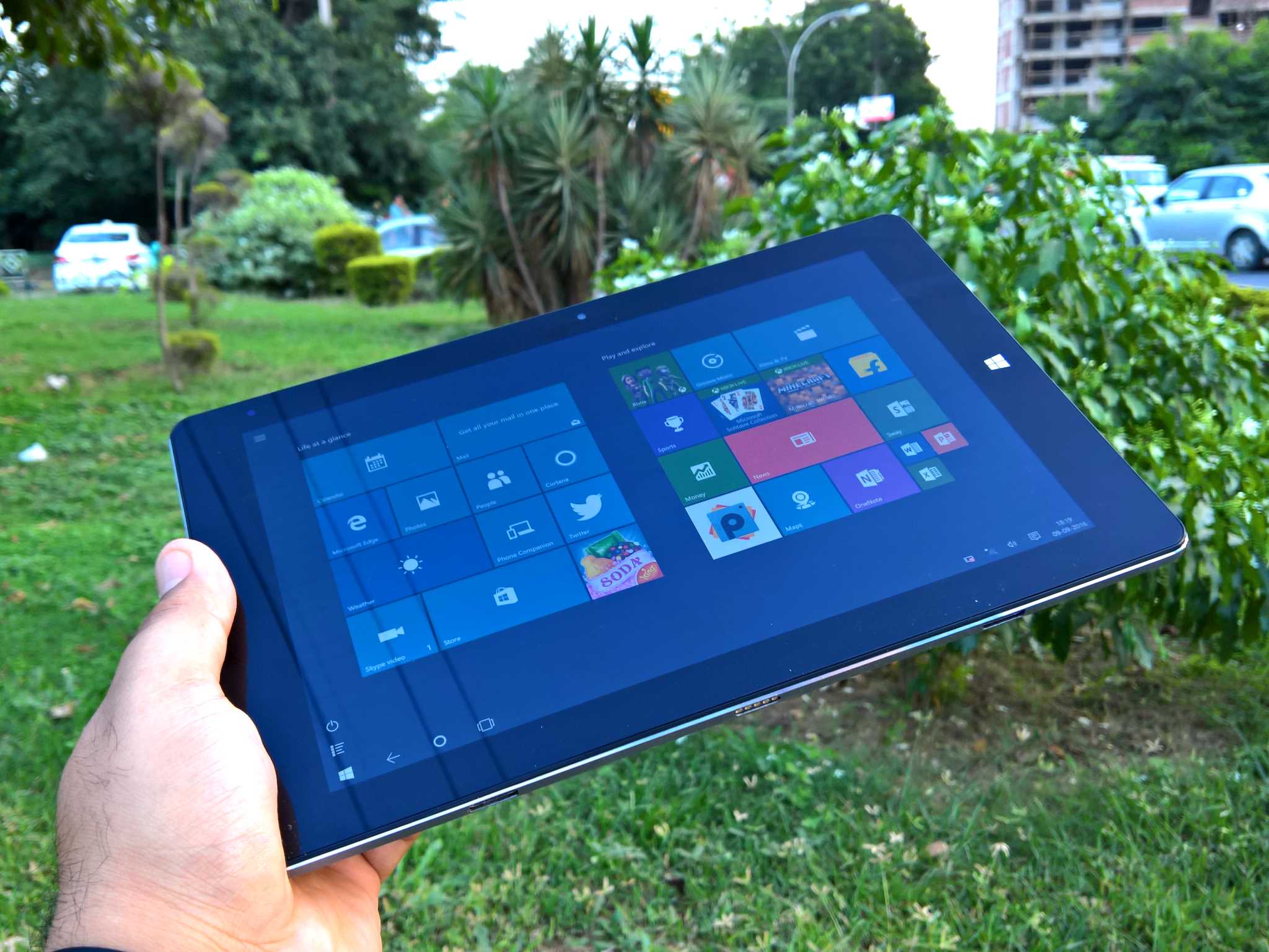
The Bottom Line
The Chuwi Hi10 Pro has a lot going for it. There's the beautiful display and the stylish aluminum chassis. At $179 for the tablet, and another $40 for the keyboard, it's a terrific deal, really. More value, than money.
Apart from the wonky touchpad, I struggled to find a showstopper. The performance, while only average, is what one expects at this price and with the internals it packs. That said, the Intel Cherry Trail processor and 4GB of RAM do keep it going for an average user.


